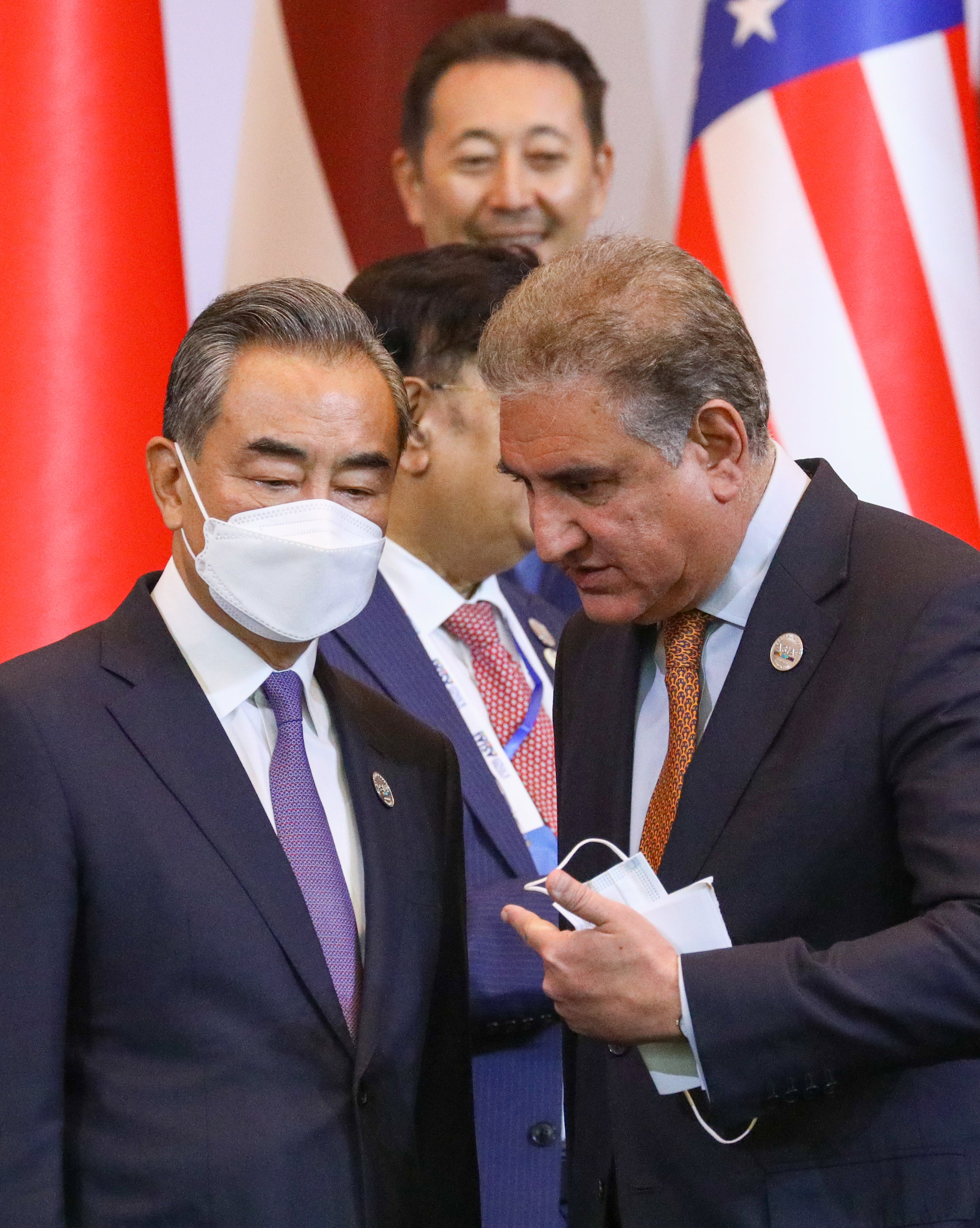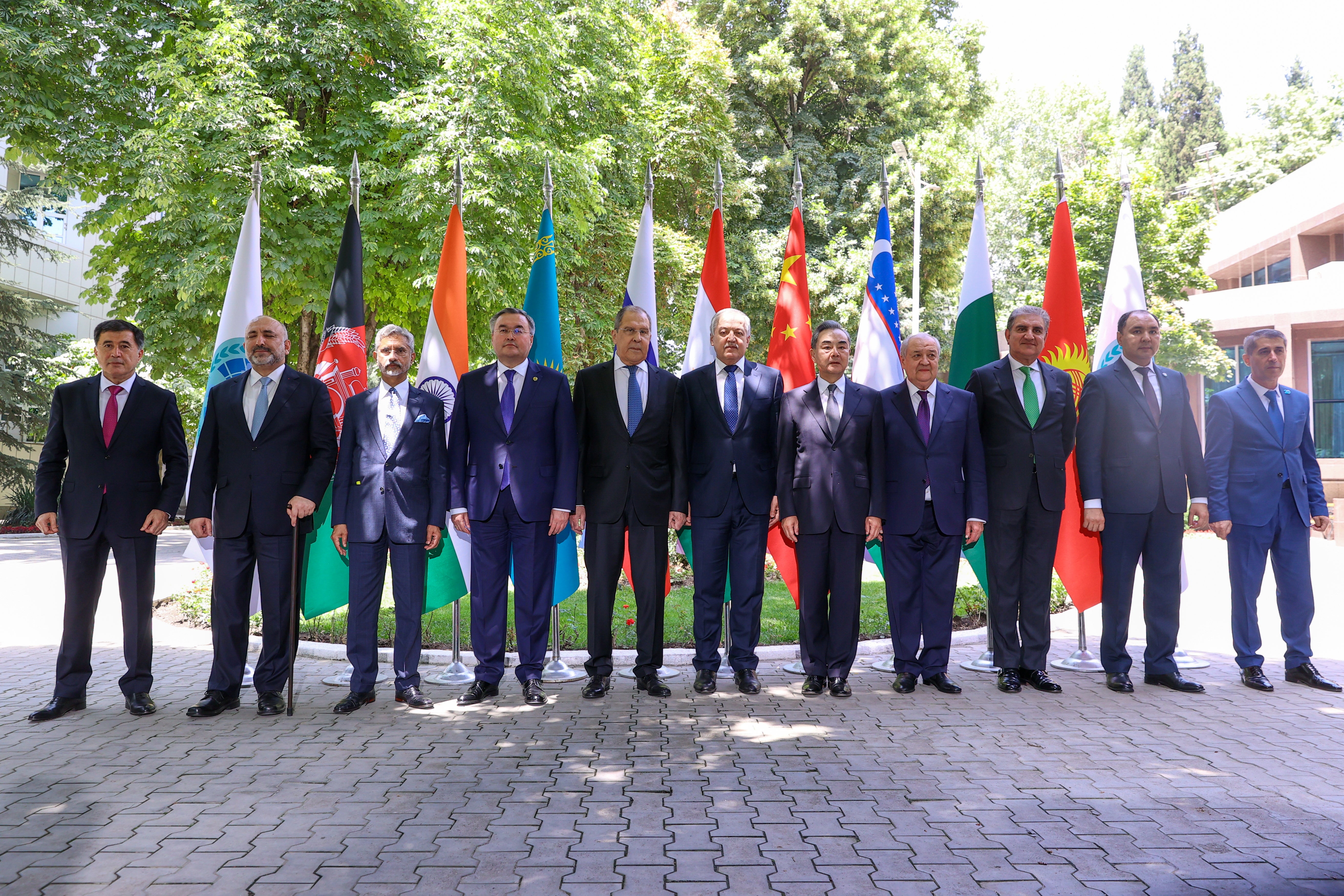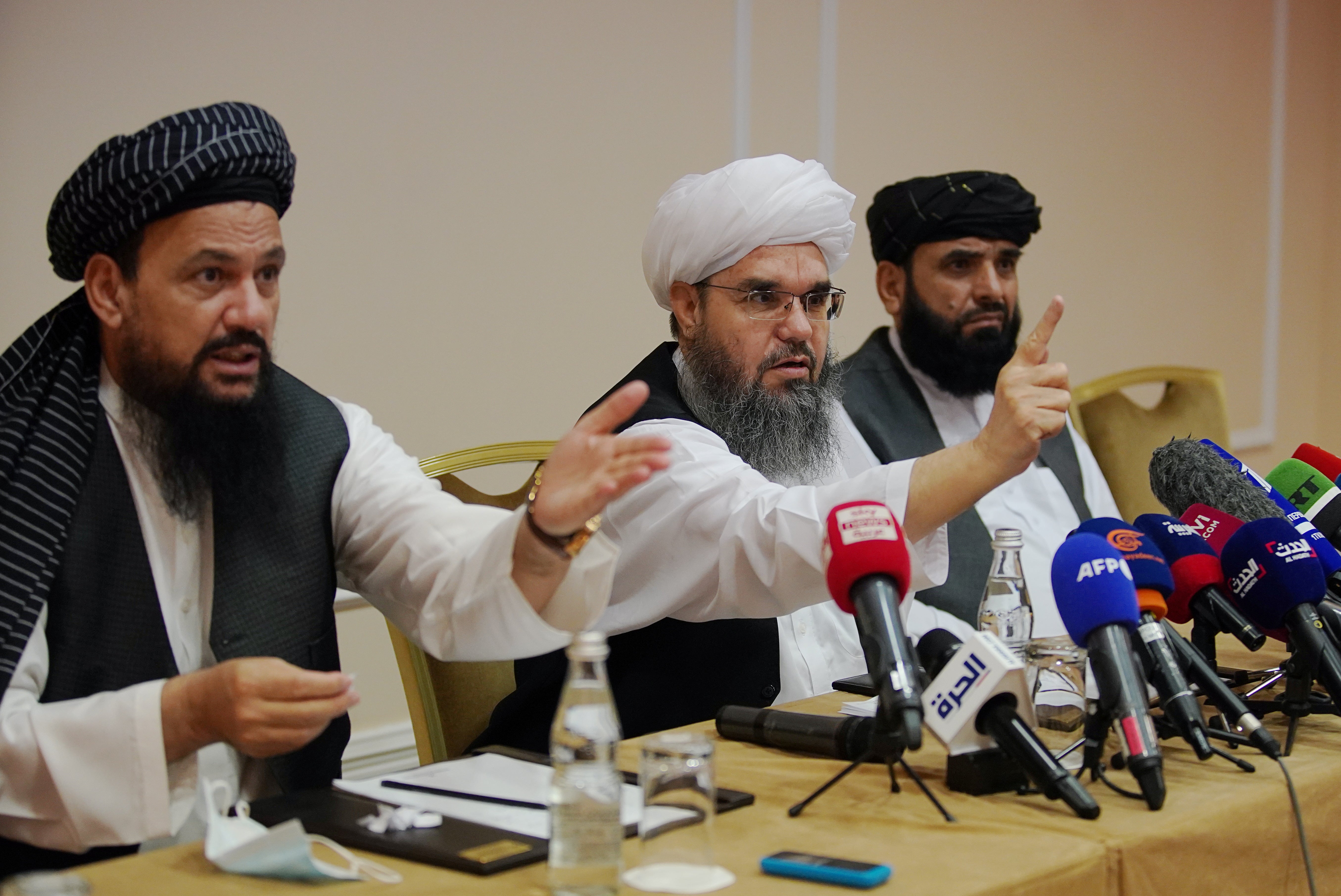China doesn’t care whether the Taliban wins or loses - either way, it stands to gain
The Chinese Communist Party wants to fill the vacuum left by the US troop withdrawal using its Belt and Road initiative, reports Mayank Aggarwal


As soon as the US announced the withdrawal of its troops from Afghanistan, Beijing knew it would be dealing with a resurgent Taliban. Since then it has walked a tightrope, neither criticising it completely nor embracing it.
China keenly understands the risks of dipping its toes in Afghanistan’s internal politics after the withdrawal, which is expected to finish by 31 August. It is also aware of the ripple effects that Afghanistan’s government, the Taliban and Pakistan can create across the region.
This may be why China is exercising caution. Earlier this month, China’s foreign minister Wang Yi said the Taliban should “make a clean break with all terrorist forces and return to Afghanistan’s political mainstream” at a press conference in Dushanbe with the Tajik foreign minister Sirojiddin Muhriddin.
He added that over the years the Afghan government has made great efforts to maintain national unity and social stability and to improve people’s livelihoods, and this should be given due recognition. “The Taliban, as a major military force in Afghanistan, should recognise its responsibility toward the country and the nation,” he said.
It was followed by the foreign ministers of the Shanghai Cooperation Organisation (SCO) calling for an end to violence in Afghanistan against civilians and urging Afghanistan’s government to strengthen its position to ensure stability.

“With the drawdown of western forces from their immediate neighbour Afghanistan, the Chinese are aware of the emerging threat to their country,” explains Rohan Gunaratna, professor of security studies at Nanyang Technological University in Singapore.
He said the withdrawal of US and European forces is creating a security vacuum and “unless this security gap is rapidly filled, there will be a global resurgence of threat”.
In particular, we should not easily reject the goodwill from the Taliban, which is of great significance to our exerting influence in Afghanistan and maintaining stability in Xinjiang
“Although the Chinese lack the capabilities to do so, Beijing is planning to work together with Pakistan to stabilise Afghanistan,” Gunaratna tells The Independent. But he said Beijing is also aware of the “terror” threat posed by certain groups in Pakistan and Islamabad’s ties with the Taliban.
Professor Ajay Darshan Behera, director of the Academy of International Studies at Delhi’s Jamia Millia Islamia University, espoused similar sentiments as he points out that Beijing is in a difficult situation as it has no prior experience of dealing with the dynamic situation that is in Afghanistan.
“It is a complex entanglement. At the moment, it is very difficult to categorically pinpoint what exactly China’s response would be but mostly I believe China would have to deal with Afghanistan and Taliban through Pakistan,” Behera explains.
He adds that the US has only agreed to withdraw ground troops and has not ruled out other forms of military action. “We should remember that even before 2001 the US had used other assets in the region to attack terrorist hideouts.”

Foreign policy experts say China is wary of dealing with the Taliban given it is under pressure internationally over its treatment of Uyghur Muslims in the Xinjiang region.
On Monday, China and Pakistan announced their decision to launch joint actions in Afghanistan to stop it from spiralling into a full-scale civil war and becoming a hotbed of “terrorism”, though their views on what that constitutes differ. They also talked of fighting with the East Turkestan Islamic Movement (ETIM), which is against Beijing’s treatment of Uyghurs. A UN report in June 2021 had confirmed the presence of ETIM militants in Afghanistan.
In a recent editorial, the state-controlled Global Times newspaper, which is widely seen as reflecting the prevailing Chinese Communist Party view, said that the Afghan government and the Taliban have both expressed their friendly attitude toward the nation and that it is “certainly good for China”.
It noted that “if China were to turn against the Taliban at this point, it would be tantamount to digging a diplomatic trap by itself,” adding that neither the US nor the UK currently tags the Taliban as a terrorist group.
“The situation around Afghanistan is rather complex, but China clearly knows what its national interests are. We should not create enemies for ourselves at this crunch time. In particular, we should not easily reject the goodwill from the Taliban, which is of great significance to our exerting influence in Afghanistan and maintaining stability in Xinjiang,” said the editorial.
Prof Behera says Beijing still has concerns about the Taliban having too much control in Afghanistan.
“China is caught in a dilemma about the move ahead,” Prof Behera says. “It is in a fix about allowing Pakistan to influence their dealing with the Taliban. They may not articulate it publicly but the Taliban regime in power is something that they would be worried about,” he said.
Dr Jagannath P Panda, a research fellow at the Delhi-based Manohar Parrikar Institute for Defence Studies and Analyses, says “a stable Afghanistan under (Afghan president Mohammad Ashraf) Ghani would be preferred by China especially as Beijing is uncomfortable with the fact that Taliban is yet to break away from terror groups and invest in mainstream Afghan politics”.
A post-US Afghanistan, once stable, can become a major ground for Beijing’s strategic overture
China’s concern could be that the Taliban’s return to power would pave the way for a build-up of Isis and Uyghur extremists, according to Panda, which could trickle into China itself via the Wakhan corridor. This could further destabilise China’s Xinjiang region.
He added that “Beijing ideally would like to fill” the vacuum left by western nations in Afghanistan by making an exclusive entry into the country via its Belt and Road Initiative (BRI).
“Until now China’s approach to Kabul has been of limited cooperation aimed at achieving regional consensus to control the conflict while focusing on its own national interests. A post-US Afghanistan, once stable, can become a major ground for Beijing’s strategic overtures,” says Panda.
The Taliban has already stated that it would support development projects by China in Afghanistan. But, Panda cautions, China will not likely push BRI in “an unstable Afghanistan: peace, be it via the Afghan government or via the Taliban, is crucial to China”.
The experts may be divided over China’s role in Afghanistan in the weeks and months ahead but it’s clear that India is struggling to navigate the changed reality as other countries’ troops withdraw.
“India’s reaching out to the Taliban won’t benefit New Delhi. In fact, why would the Taliban be bothered about India?” questions Behera.
Besides the local impact, the Taliban’s resurgence in war-torn Afghanistan is worrying many who believe it could mean a return of a safe haven for extremist groups.
Professor Gunaratna says that “in the coming weeks and months, Afghanistan will descend into chaos due to the inability and unwillingness of the international community to work together”.
“If India and Pakistan had cordial relations, they could have convened a global summit to ensure the systematic drawdown of western forces and creation of a monitoring mechanism to keep terrorism and extremism out of Afghanistan,” he says.
He highlights that the Taliban “has not appreciably changed its ideology from the pre-2001 period” when it hosted al-Qaeda and facilitated terrorist training for over 40 threat groups worldwide. “Afghanistan will re-emerge as a terrorist Disneyland in the coming months and years,” he warns.
Join our commenting forum
Join thought-provoking conversations, follow other Independent readers and see their replies
Comments
Bookmark popover
Removed from bookmarks